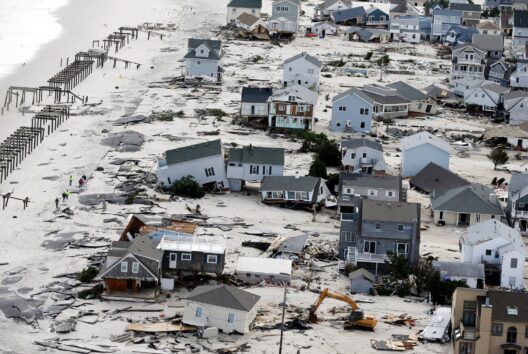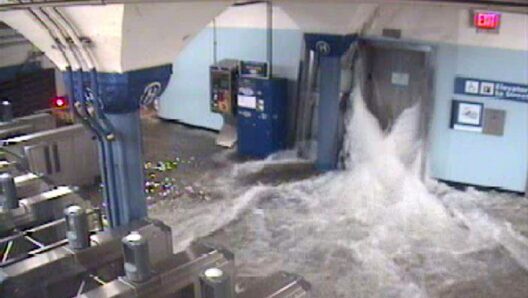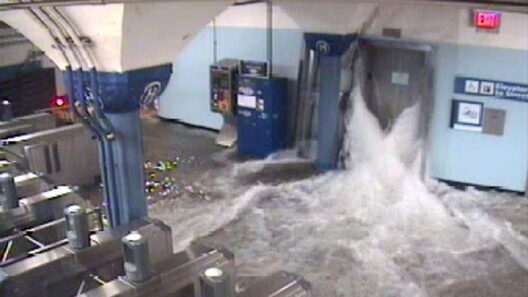Coral reefs, often referred to as the “rainforests of the sea,” are vibrant, intricate ecosystems that house a multitude of marine life. These underwater gardens, resplendent with color and teeming with biodiversity, are not merely beautiful; they are crucial. They protect coastlines, support fisheries, and contribute to the overall health of oceanic environments. However, the alarming reality of climate change looms over them like an ominous shadow, threatening to alter this underwater paradise irrevocably. Are coral reefs dying? The answer is a resounding yes, and this decline symbolizes the broader struggles faced by ocean ecosystems in the throes of global warming.
The tragic plight of coral reefs begins with coral bleaching, a phenomenon that arises when corals, under stress from high water temperatures, expel the symbiotic algae, known as zooxanthellae, living in their tissues. These algae provide corals with essential nutrients and their vibrant colors. Without them, corals turn white—bleached—and they lose their vitality. This stunning transformation is akin to a once-lush forest stripped of its leaves, revealing a stark, barren landscape. The expulsion of these algae not only affects the appearance of coral reefs but also disrupts the entire ecosystem, leading to reduced fertility, increased susceptibility to disease, and, ultimately, the death of the coral.
As global temperatures escalate due to human-induced climate change, the frequency and severity of coral bleaching events have surged alarmingly. The Intergovernmental Panel on Climate Change (IPCC) warns that, if current trends continue, the oceans may warm by 1.5 degrees Celsius above pre-industrial levels as early as 2030. This tipping point would spell disaster for coral reefs. The dire consequences are manifesting not only in large-scale ecological transformation but also in the loss of livelihoods for millions of people who depend on healthy reefs for their economic survival.
Coral reefs are essential for coastal communities. They serve as natural barriers, absorbing wave energy and protecting shorelines from erosion and storm surges. The loss of coral reefs can lead to devastating consequences, including increased flooding and loss of coastal infrastructure. Moreover, they sustain fisheries that provide food for millions. The decline of these submerged ecosystems threatens food security and economic stability, turning vibrant fishing communities into struggling populations.
Nutrient cycling is another critical function of coral reefs. They play an essential role in supporting marine food webs. Fish and other marine organisms rely on the structural complexity provided by corals for shelter and breeding grounds. The demise of coral reefs diminishes this complexity, resulting in decreased fish populations and biodiversity. This loss reverberates through entire marine ecosystems, illustrating the profound interconnectedness of ocean life. The decline of one species can lead to a cascade of effects, resulting in an ecological imbalance.
However, the story of coral reefs is not solely one of despair; it also reflects resilience. In some regions, corals exhibit remarkable adaptability. Certain species have been observed developing heat-resistant traits. This potential for adaptation suggests a glimmer of hope amidst the gloom. Protecting and conserving these resilient corals could help ensure the survival of these vital ecosystems. Additionally, innovative restoration efforts have emerged, such as reef restoration initiatives and coral gardening, which aim to rehabilitate damaged reefs and enhance their resilience to climate change.
There is also an urgent need for comprehensive policies to combat climate change at the systemic level. Reducing greenhouse gas emissions is paramount. The introduction of marine protected areas can further aid coral preservation by reducing local stressors, such as overfishing and pollution. Targeting these stressors can enhance reef resilience, enabling them to recover from bleaching events more effectively. In tandem with global measures, local actions are crucial for safeguarding coral ecosystems.
The fight to save coral reefs transcends the boundaries of ocean conservation; it calls for collective action at all levels—individual, societal, and governmental. Advocating for sustainable consumer choices and promoting awareness about the impacts of climate change on reefs inspires collective responsibility. Education plays a vital role in fostering stewardship of the ocean. By empowering individuals with knowledge, communities can make informed decisions and advocate for sustainable practices that protect these habitats.
In conclusion, the fate of coral reefs serves as a poignant reminder of the fragility of marine ecosystems in an era of climate change. The correlation between rising temperatures and the health of coral reefs underscores a larger existential crisis faced by our oceans. With proactive measures, innovative solutions, and a shared commitment to environmental stewardship, there remains hope. Protecting coral reefs is not just about preserving beauty; it is about sustaining a critical resource for humanity and the myriad of species with whom we share this Earth. As stewards of the planet, we must rally to prevent our oceans, and the vibrant life within them, from succumbing to the harsh realities of climate change. The time to act is now—before these underwater treasures fade into oblivion.








